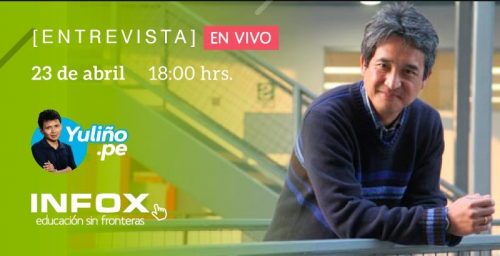Covid-19
The current Covid-19 crisis is a defining moment of our lifetimes. I have been trying to help in different ways, drawing on my experience and research on economic and financial crises. This one is somewhat different, however, which calls for new, innovating thinking, not to talk about swift action. Here I gather some of my contributions so far, as well as discussions and interviews.
- Pandemics, Incentives, and Economic Policy: A Dynamic Model , with Humberto Martínez and Andrés Velasco, March 2021
- Credit, Employment, and the Covid Crisis , with Luis Céspedes and Andrés Velasco. Working Paper, January 2021.
- Covid-19: Economic Implications and Policy Lessons A conference at the Central Bank of Chile, January 2021. Co-organizers: Roberto Chang, Andrés Neumeyer, Alvaro Aguirre, and Sofía Bauducco.
- The Real and Fiscal Aftermath of the Pandemic A presentation for the 2020 RIDGE Workshop in International Macro.
- Peru Squandered Its Early Covid Advantages. Here is How It Can Recover , Americas Quarterly July 2020. A perspective on the Peruvian case with emphasis on options available in the short run.
- Economic policies can induce people to quarantine safely during the pandemic , with Andrés Velasco, in The Conversation, June 2020.
- The Macroeconomics of Pandemics: A Minimalist Model, with Luis Felipe Céspedes and Andrés Velasco. Working Paper, May 2020. We develop a bare bones model of a pandemic crisis that emphasizes the interplay between labor employment, productivity, and financial constraints. Shedding jobs can be costly for productivity once the pandemic subsides, which makes it desirable to preserve employment even if productivity is temporarily low. However, in the presence of collateral constraints, firms may not be able to finance the current wage bill and be forced to dismiss workers. And collateral constraints may become tighter if the value of firms fall, reflecting expectations of future profits and productivity. This interaction implies amplification of the health shock and possibly multiplicity of equilibria. The model suggests a justification of several current unconventional policy proposals, including temporary subsidies to wage costs and credit guarantees.
- Economic Policy Incentives to Preserve Lives and Livelihoods , with Andrés Velasco. Working Paper, April 2020. Comments are most welcome. The Covid-19 shock is not exogenous: its magnitude depends on individual decisions to adhere to lockdowns and other public policy directives, decisions that are influenced by economic policy. This fact has crucial implications for the analysis of current economic policy proposals and their interaction with public health measures. We develop these implications in the context of a model that, in spite of its simplicity, is the first one to feature complete microfoundations of the joint determination of infection and economic outcomes. This means, in particular, that our analysis is immune to the Lucas Critique in a way that existing studies are not. Many practical lessons emerge from the analysis: most importantly, we show how public health measures and economic policies can complement each other, reducing the cost of preserving both lives and livelihoods.
- Economic Policy Incentives in the Fight Against Pandemics , with Andrés Velasco, a column for Vox discussing the ideas above
- The Virus Turns South, with Andrés Velasco, March 2020, for Project Syndicate
- Interview: Casa America Catalunya on the Covid-19 crisis (in Spanish)
- Ethical and Economic Imperatives in Confronting Covid-19 An open letter written by four past Latin American presidents and nine prominent economists. This version was published in Americas Quarterly.
- Macro Policy in the Time of COVID-19 A World Bank e-seminar organized by Norman Loayza. My presentation discusses the question of economic policy incentives in the fight against Covid-19: you can find the slides here

- Interview: Is the Covid-19 crisis different? (in Spanish)
- Sobre el Coronavirus y las crisis económicas (in Spanish). A post for focoeconomico.org listing some of my early thoughts.